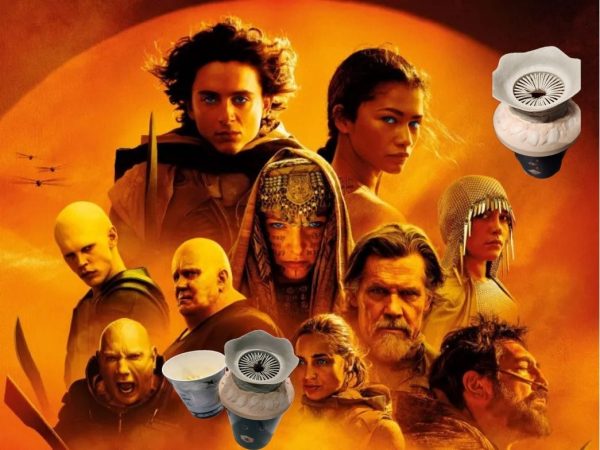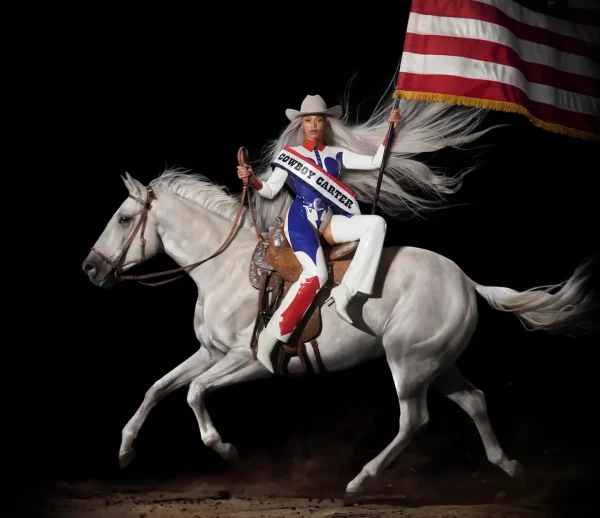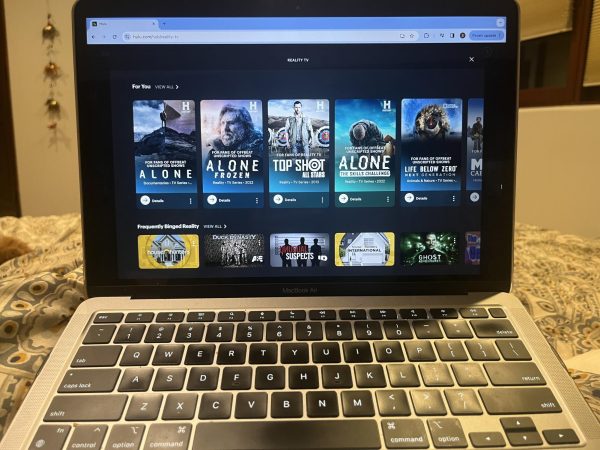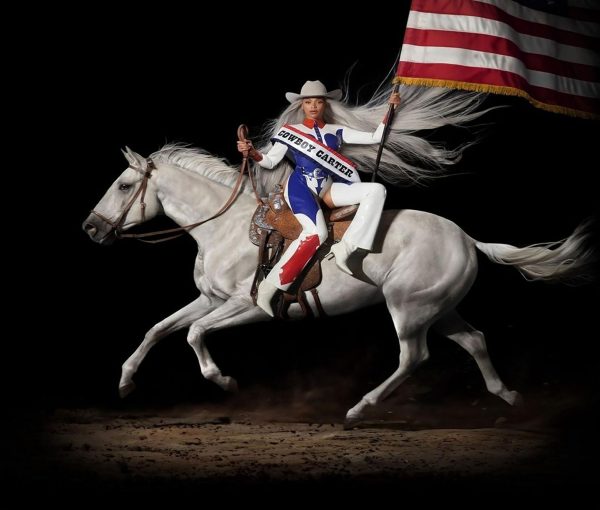Is Choker a “Frank Ocean Clone”?
May 7, 2021
I discovered the album Peak by Choker, the singer/rapper/producer, somewhere between my homework and procrastination via the rabbit hole that is YouTube recommendations. Immediately my interest was piqued (no pun intended) by his melodic vocals and euphoric instrumentals. The first thing I noticed was how creative his music is in terms of production, which was surprising considering Choker, or Chris Lloyd, self-produced the entire album with zero features. That means every sound you hear throughout the album was produced by Choker.
Despite how unique I found Choker’s sound to be, many likened this album to Frank Ocean. Choker’s vocal approach and production are that of a “Gloriously Unpolished Frank Ocean Offspring” said Yoh Phillips of DJBooth. To which I’d respond yes, and no. I’d like to first preface this by saying that I listened to Choker before listening to Frank Ocean. Although I’m very familiar with Odd Future offshoots like Tyler The Creator, Earl Sweatshirt, and The Internet, I’d yet to discover Frank Ocean. Despite this, I did my best to make an objective comparison between Blonde and Peak.
Although I do hear blatant Frank Ocean influence in Peak, I wouldn’t go so far as to say Choker is an “unpolished Frank Ocean.” Choker and Frank Ocean are two of very few artists that have blended genres such as R&B, Psychedelic Rock, and Hip Hop. And because of that, it’s very obvious that Choker has used Frank Ocean’s music as an influence while navigating the blending of these genres. I guess the question that needs to be answered is has Choker diversified himself enough to where that “influence” can’t be described as blatant plagiarism? The best way I can answer that question is to compare two main aspects of their music: vocals and production.
I do see where people would say Choker is “cloning” Frank Ocean, especially in songs like “Tape: Side A”. Throughout the song, Choker utilizes beat switching, a technique that producers use where they fluidly transition between two seemingly different songs to tell one story. Beat switching is something that Frank Ocean has been known for with songs like Chanel, Nights, or Pyramids. But beat switching is very common throughout several genres of music. Because of that, I wouldn’t say Choker’s use of beat switching should be considered plagiarism.
Another big difference that I noticed between the two artists’ production is the sound of their songs throughout the albums, the melody, overall vibe, and beat pace. Choker’s songs don’t follow any consistent pattern or fit one mood. At one point, you’ll be listening to solemn soft vocals with lo-fi production, and it’ll slowly transition into an entirely new song with a different feel, but it’s on the same track. With Choker’s production, no song on the album ends with the same feel as when it started, whereas a majority of Frank Ocean’s album is more lo-fi/laid-back with slower beat pacing, soft vocals, and very few beat switches. I tend to be more drawn towards Choker’s approach in production because you truly never get bored while listening to the album. However, Frank Ocean’s approach does show more structure and tells more of a consistent story. This is why I see why some would say Choker is an “unpolished” Frank Ocean. But I disagree with them because Choker’s lack of structure is in a way his distinct style.
Much like his production, Choker is very fluid in what he chooses to do throughout each song with his vocals and rapping. Throughout much of the album, his vocals have reverb, pitching, and a very euphoric feel. The vocals seem to act as another instrument. Throughout the entire album, Choker’s vocals just flow very well with his production; there’s never a point where I feel like the vocals and production don’t blend well together. When Choker raps, it’s usually intertwined with singing and other vocals/effects. In the middle of the song “Moksha,” he transitions quite masterfully from vocals to rapping by reverbing the vocals and fading them into an unexpected rap verse with vocal instruments in the background. This is then followed by a bridge that leads into the chorus.
Choker is very fluid in what he chooses to do throughout each song with his vocals and rapping.
— Malik Jaiteh
In the first song “Mango (Mountain Version),” Choker starts with a very simple lo-fi instrumental that he’s seemingly speaking over. I thought this fit the beginning of the song very well because he later transitions into singing over the same calm beat. These two songs are examples of where I thought he really diversified himself from Frank Ocean in terms of the overall sound of his songs. However, in songs like “Tape: Side A” and at the end of “Diorama,” there are moments where Choker’s vocals sound very similar to Frank Oceans. In “Tape: Side A” the similarity is in the way Choker’s vocals are pitched, while in “Diorama” it’s a mix of the way the vocals and production sound together.
With the comparisons I’ve made it’s quite obvious that Frank Ocean has had an influence on Choker’s music. That’s a big part of what makes Choker’s music great—he’s able to take influence from multiple places and create many sounds throughout one song. I wouldn’t say that influence is plagiarism because he makes it into an entirely new sound.
Overall, I’m excited to see what Choker produces in the future. Judging by his sophomore album Honeybloom it’s clear that he’s diversified himself even further as an artist. If you like Frank Ocean or artists similar to him, I’d definitely recommend listening to Peak. My favorite song from the album was “Jawbreaker.”
This story was originally published on Knight Errant on May 6, 2021.
















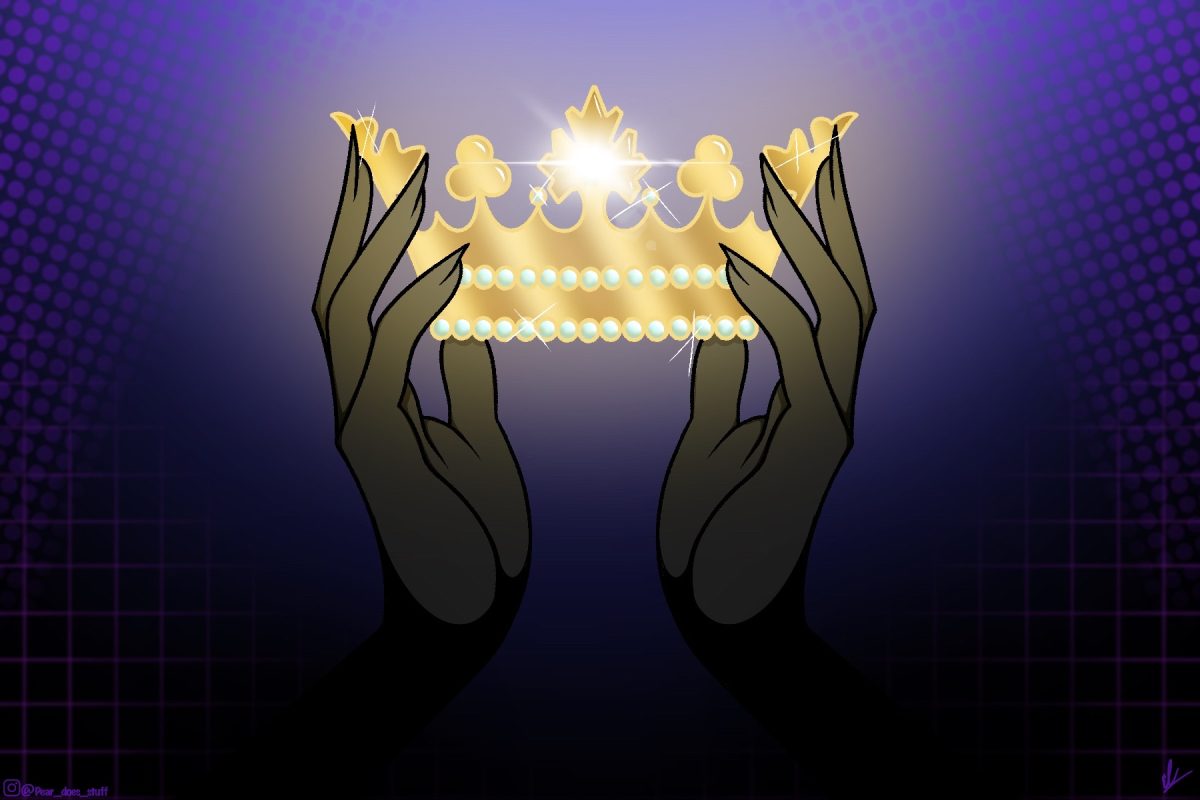










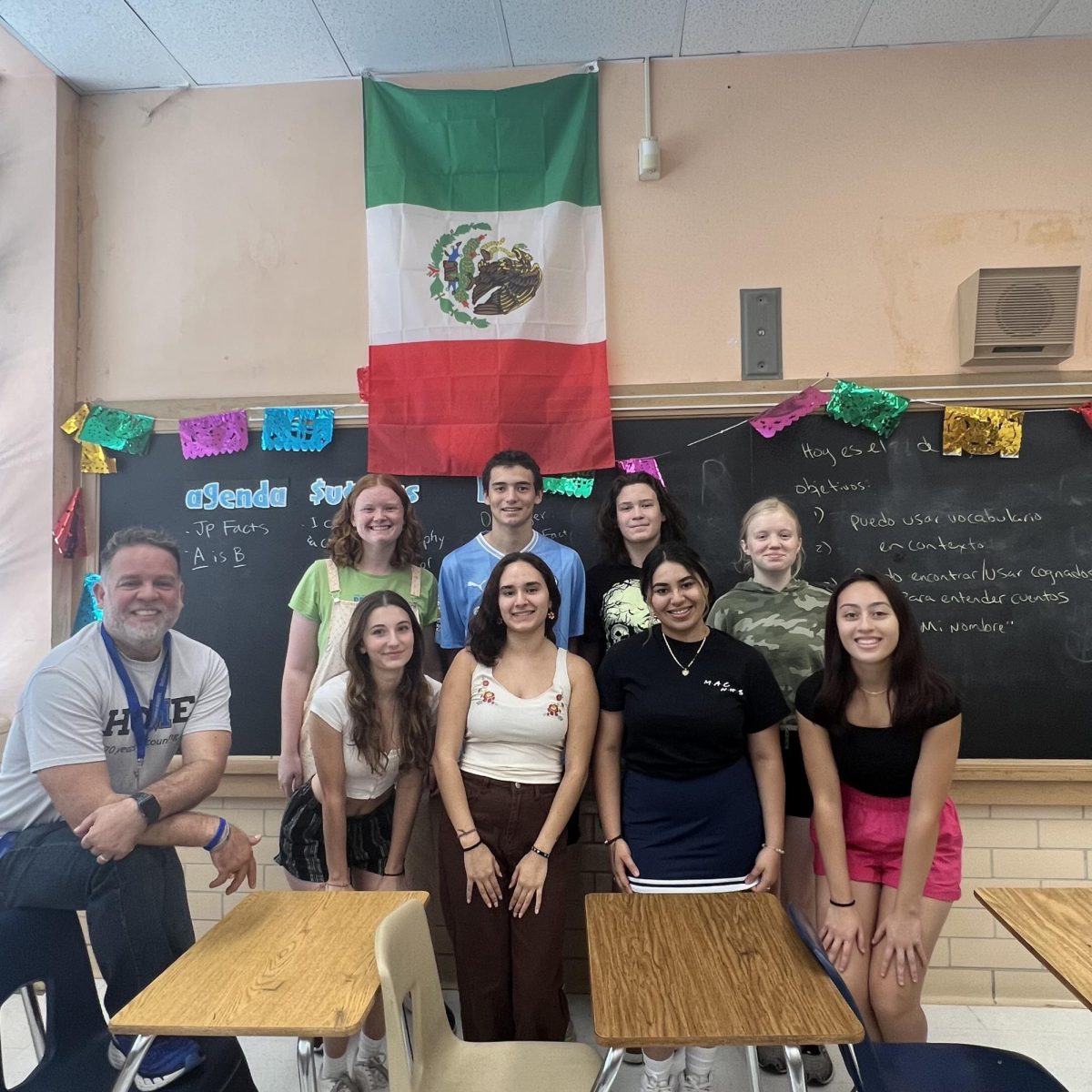

![IN THE SPOTLIGHT: Junior Zalie Mann performs “I Love to Cry at Weddings,” an ensemble piece from the fall musical Sweet Charity, to prospective students during the Fine Arts Showcase on Wednesday, Nov. 8. The showcase is a compilation of performances and demonstrations from each fine arts strand offered at McCallum. This show is put on so that prospective students can see if they are interested in joining an academy or major.
Sweet Charity originally ran the weekends of Sept. 28 and Oct. 8, but made a comeback for the Fine Arts Showcase.
“[Being at the front in the spotlight] is my favorite part of the whole dance, so I was super happy to be on stage performing and smiling at the audience,” Mann said.
Mann performed in both the musical theatre performance and dance excerpt “Ethereal,” a contemporary piece choreographed by the new dance director Terrance Carson, in the showcase. With also being a dance ambassador, Mann got to talk about what MAC dance is, her experience and answer any questions the aspiring arts majors and their parents may have.
Caption by Maya Tackett.](https://bestofsno.com/wp-content/uploads/2024/02/53321803427_47cd17fe70_o-1-1200x800.jpg)
![SPREADING THE JOY: Sophomore Chim Becker poses with sophomores Cozbi Sims and Lou Davidson while manning a table at the Hispanic Heritage treat day during lunch of Sept 28. Becker is a part of the students of color alliance, who put together the activity to raise money for their club.
“It [the stand] was really fun because McCallum has a lot of latino kids,” Becker said. “And I think it was nice that I could share the stuff that I usually just have at home with people who have never tried it before.”
Becker recognizes the importance of celebrating Hispanic heritage at Mac.
“I think its important to celebrate,” Becker said. “Because our culture is awesome and super cool, and everybody should be able to learn about other cultures of the world.”
Caption by JoJo Barnard.](https://bestofsno.com/wp-content/uploads/2024/01/53221601352_4127a81c41_o-1200x675.jpg)





